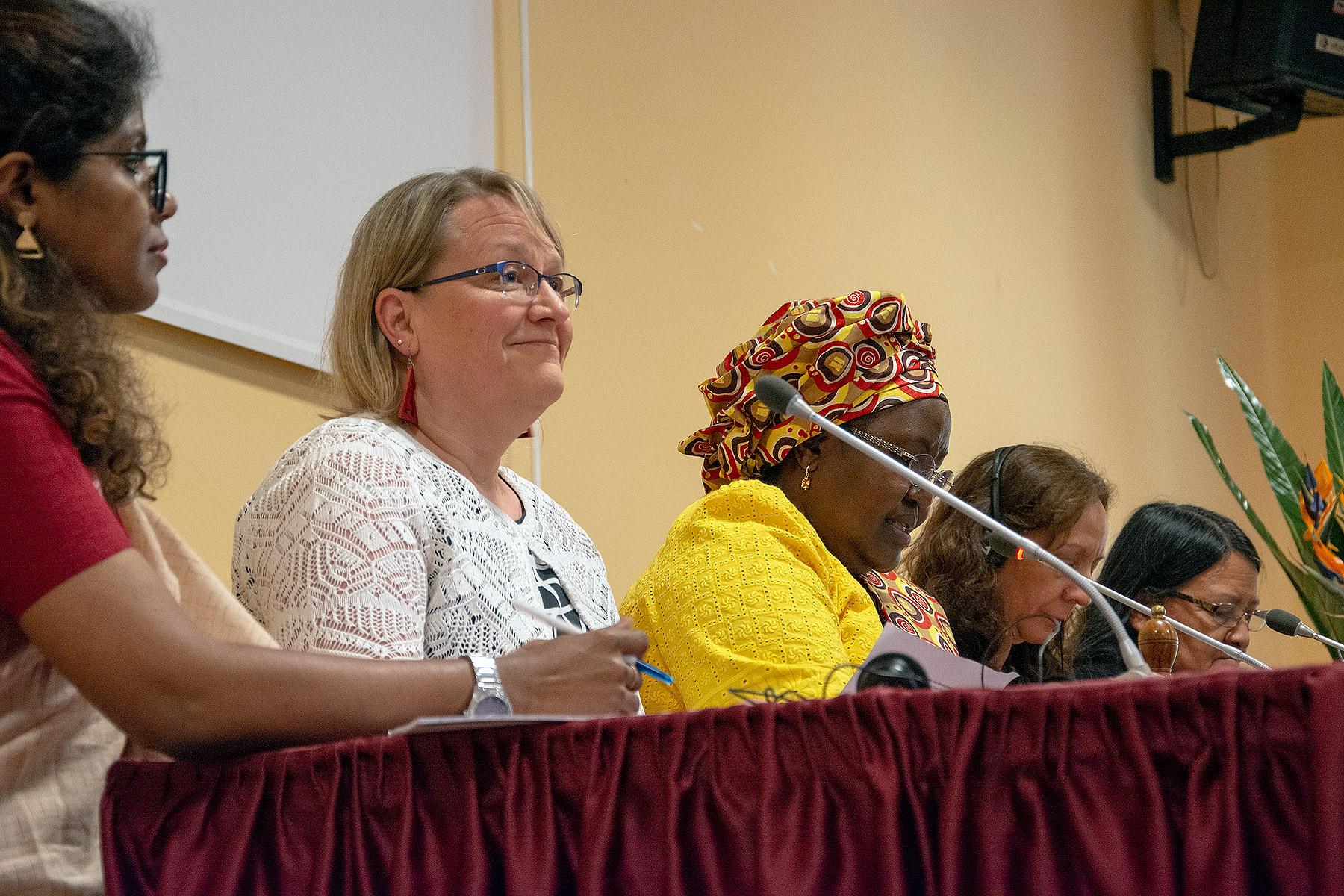Lutheran perspectives on women in leadership

Maria Immonen, director of LWFâs World Service department at the Womenâs Forum organized by Caritas Internationalis. Photo: Lucia Ballester Bellver/Caritas
The head of LWF’s World Service shares experiences with Catholic colleagues at Caritas Internationalis Women’s Forum
(LWI) - The director of the World Service department of the Lutheran World Federation (LWF) has shared challenges and hopes about the future of women in leadership at a forum organized by the Catholic church’s aid and development network, Caritas Internationalis (CI).
Maria Immonen was appointed as the first female director of World Service in 2015. She was invited as an ecumenical guest to the Women’s forum which took place on 22 May in Rome, ahead of the CI General Assembly.
In her presentation, the Finnish-born Immonen spoke of her own background, with a grandmother who was a politically active women’s rights advocate and a mother who was one of the first women to be ordained to the priesthood in Finland.
Commitment to gender justice
She also spoke of the LWF’s “long-standing commitment to gender justice and women’s empowerment, with a global quota system introduced already in 1984, and a globally adopted gender justice policy in 2013,” which is widely used in all of the 148 member churches across the globe.
Gender justice for LWF, she said, implies “the protection and promotion of the dignity of both women and men. It also emphasises that men and women, being created in the image of God, are co-responsible stewards of creation.”
Progress in women’s participation
Noting that most LWF member churches ordain women as priests and bishops, Immonen highlighted the significant strides made towards women’s active engagement and participation in the life of her church over the past decades.
But, as she followed her career as a lay woman working in the humanitarian and development sector, she learnt more about the challenges still facing women in the church and in wider society. She noticed “which conversations I was included in and which ones I was not,” and how “violence against women, even within the church, remains a challenge” in countries across the globe.”
When will men dare to bring issues touching on male roles which are harmful to both men and women into our common discussions?
Need to remain committed
She rejoiced in the support of both women and men, colleagues and mentors who “encouraged me when my own faith in my capacities has floundered.” Most importantly, she said, organizations and leaders must not waver in their commitment to uphold women’s equal rights and to “call out those who would prefer to ignore them.”
Finally, Immonen shared reflections drawn from similar women’s meetings she has attended, questioning when such key issues of justice and equality will be included as central points of plenary sessions and discussions.
“When will men dare to bring issues touching on male roles which are harmful to both men and women into our common discussions,” she asked? “When will we reach the stage where all our issues are viewed as challenges we share and impact us all if we cannot resolve them?”



